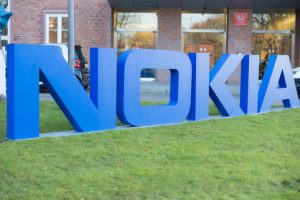NOKIA BELL LABS AND AMBER RESEARCHERS FORMULATE NEW BATTERY DESIGN FOR THE 5G WORLD
By Nokia

New battery technology provides critical attributes for 5G networks, renewable energy grids, and the consumer and Industrial Internet of Things
- Offers 2.5 times the battery life in the same volume as the current market leading super slim battery
- Doubles the energy a battery can carry without changing the weight, a critical requirement for uses such as IoT networks, electric vehicles and drones
20 June 2019, Espoo, Finland, and Dublin, Ireland: Researchers at Nokia Bell Labs and AMBER, the SFI Centre for Advanced Materials and BioEngineering Research hosted at Trinity College Dublin, today announced they have created a new, innovative formula for battery composition that makes batteries more powerful by packing 2.5 times the battery life than anything currently on the market. As the world transitions to 5G, ushering in a new era of consumer and industrial Internet of Things (everything from wearable technologies, pervasive sensors, to industrial robots), this new, game-changing battery design has the potential to help power the connected world of the future.
The increasing power requirements of connected devices such as smartphones, drones, electric cars and robots necessitates greater battery performance for both new applications as well as longer battery lifetimes. The new battery design also has far-reaching implications for 4G and 5G networks where conventional power may not be available for network equipment, or where emergency backup battery systems are essential to keep systems running.
“By packing more energy into a smaller space, this new battery technology will have a profound impact on 5G and the entire networked world,” said Paul King, one of the lead investigators on the project and Member of the Technical Staff, Nokia Bell Labs. “The combination of Nokia Bell Labs industry and device knowledge and AMBER’s materials science expertise allowed us to tackle an extremely difficult problem involving multiple disciplines. Our results were achieved through the deeply collaborative mode in which we work, underscoring the value of engaging with AMBER as part of our global research strategy.”
“The significant advancement in battery technology outlined in this research is a testament to the strong collaboration between AMBER and Nokia Bell Labs. Bringing scientists together from industry and academia with a common research goal has resulted in a substantial scientific breakthrough,” said Dr. Lorraine Byrne, AMBER Executive Director. “AMBER’s partnership with Nokia Bell Labs through their Distinguished Academic Partners Program has been a hugely positive experience and clearly illustrates the benefits of industry-academic engagements. I look forward to AMBER’s collaboration with Nokia Bell Labs continuing to break new boundaries in science creating impact for society.”
An additional benefit to this new technology is its potential to improve the performance of large-scale energy grids powered by renewable energy. The demand for reliable power relies on storage technologies, such as the battery technology described here, to manage the high fluctuation in energy generation in today’s wind and solar renewable technologies. A new study from Wood Mackenzie shows that the energy storage in 100 percent renewable systems will likely be 25 times higher as compared to today’s systems. This will pose issues as the need for efficient, fast charging and compact energy storage becomes even more imperative.
A patent has been filed to protect this new technology design and help bring it to the marketplace. A study discussing the battery research performed by Nokia Bell Labs and AMBER has been published in Nature Energy* a leading international science journal.
Nokia Bell Labs has been collaborating with AMBER as part of the Nokia Bell Labs Distinguished Academic Partners Program. The program brings together Nokia Bell Labs researchers with the best and brightest minds at the world’s top universities to solve future human needs, transform human existence, and deliver disruptive innovations.
About Nokia Bell Labs
Nokia Bell Labs is the world-renowned industrial research arm of Nokia. Over its more than 90-year history, Bell Labs has invented many of the foundational technologies that underpin information and communications networks and all digital devices and systems. This research has resulted in 9 Nobel Prizes, three Turing Awards, three Japan Prizes, a plethora of National Medals of Science and Engineering, as well as an Oscar, two Grammy awards and an Emmy award for technical innovation. For more information, visit www.bell-labs.com.
About AMBER
AMBER (Advanced Materials and BioEngineering Research) is a world-leading SFI Research Centre funded by Science Foundation Ireland, hosted by Trinity College Dublin which provides a partnership between leading researchers in materials science and industry to develop new materials and devices for a range of sectors, particularly the ICT, medical devices and industrial technology sectors. Working in collaboration with CRANN (Trinity’s Centre for Research on Adaptive Nanostructures and Nanodevices), the Trinity Centre for Bioengineering and with University College Cork and the Royal College of Surgeons in Ireland.

